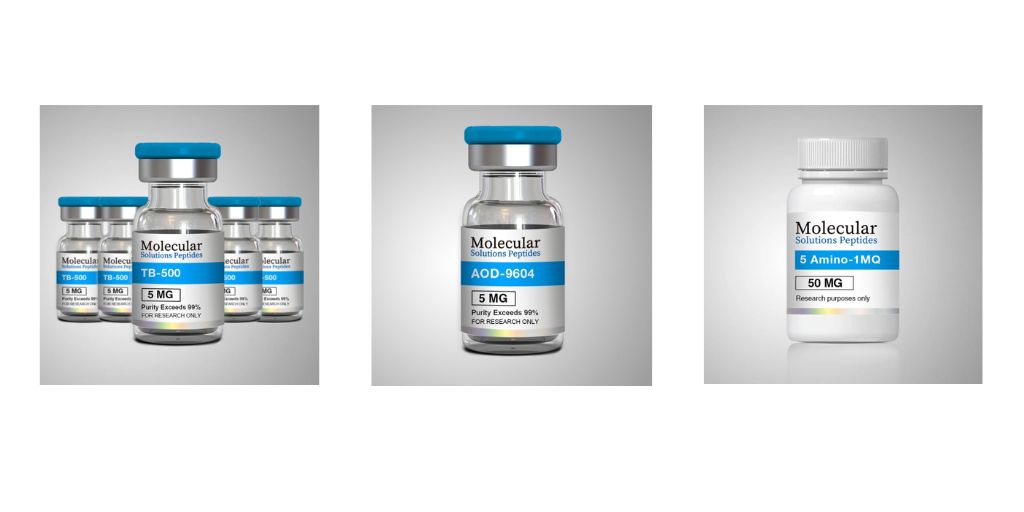Peptides have gained significant attention in scientific research over the past decade for their potential roles in regulating metabolism, muscle growth, and body composition. Among the many areas of interest, researchers have explored what are the best peptides for weight loss. While this field remains in the realm of laboratory study, understanding the mechanisms and findings from ongoing research provides valuable insight into which peptides might hold the most promise for future exploration.
Understanding Peptides in Weight Management Research
Peptides are short chains of amino acids that serve as signaling molecules in the body. They are often studied for how they interact with specific receptors that influence metabolism, appetite, and energy expenditure. Because of their targeted nature, peptides have become a major focus in metabolic research, especially in studies examining obesity and related metabolic disorders.
Researchers typically study the best peptides for weight loss in controlled laboratory settings to understand how they might affect biological pathways associated with weight regulation. Some peptides influence hunger hormones, others increase energy utilization, and some enhance the oxidation of fats. Through these studies, a clearer picture is forming of how certain peptides might contribute to a healthier body composition.
Peptides That Have Drawn Research Interest
CJC-1295 and Ipamorelin
CJC-1295 and Ipamorelin are two peptides that have been frequently researched together because of their complementary effects on growth hormone release. Laboratory research suggests that these peptides can stimulate the natural production of growth hormone, which plays a role in metabolic rate and fat utilization.
Studies indicate that increased growth hormone activity can lead to higher levels of lipolysis, the process through which fat stores are broken down for energy. In experimental settings, this has made CJC-1295 and Ipamorelin a focus of interest for researchers examining metabolic function and energy balance.
AOD-9604
AOD-9604, often referred to as the “Anti-Obesity Drug fragment,” is a modified peptide derived from a portion of the human growth hormone sequence. Unlike full growth hormone, AOD-9604 has been specifically studied for its potential fat-metabolizing effects without significantly affecting insulin or blood sugar levels.
Research suggests that AOD-9604 may promote the breakdown of stored fat while inhibiting the formation of new fat cells. It has also been studied for its possible influence on lipid metabolism and energy expenditure. Laboratory tests and early-stage studies have made this peptide one of the most frequently discussed in the context of weight management research.
5-Amino-1MQ
Another peptide gaining attention is 5-Amino-1MQ, which researchers have studied for its effect on an enzyme known as NNMT (nicotinamide N-methyltransferase). This enzyme plays a role in energy metabolism, and inhibiting it may encourage the body to burn fat more efficiently.
In research environments, 5-Amino-1MQ has been shown to potentially increase cellular energy output and reduce fat accumulation in animal models. Scientists are interested in its ability to influence the body’s metabolic pathways at a cellular level, making it a key peptide in the study of obesity and metabolic disorders.
The Importance of Controlled Research
It is important to emphasize that peptide studies are conducted in controlled environments and are not intended for human application unless approved for specific uses by regulatory authorities. Laboratory studies continue to assess safety, efficacy, and mechanisms of action before any peptide can be considered for broader testing or therapeutic development.
Research into the best peptides for weight loss and management involves complex factors such as dosage, delivery methods, receptor sensitivity, and long-term effects. Continued investigation helps scientists understand not only how these compounds work but also the potential risks and limitations of using them to influence metabolism.
As scientific exploration advances, these peptides may provide valuable insight into how the body regulates energy balance and fat storage. For now, their value lies in the knowledge they bring to metabolic research and the possibilities they open for future studies into the biology of weight management.
For more information about Nad Injections For Weight Loss and Best Peptide Website Please visit : Molecular Solutions Peptides



